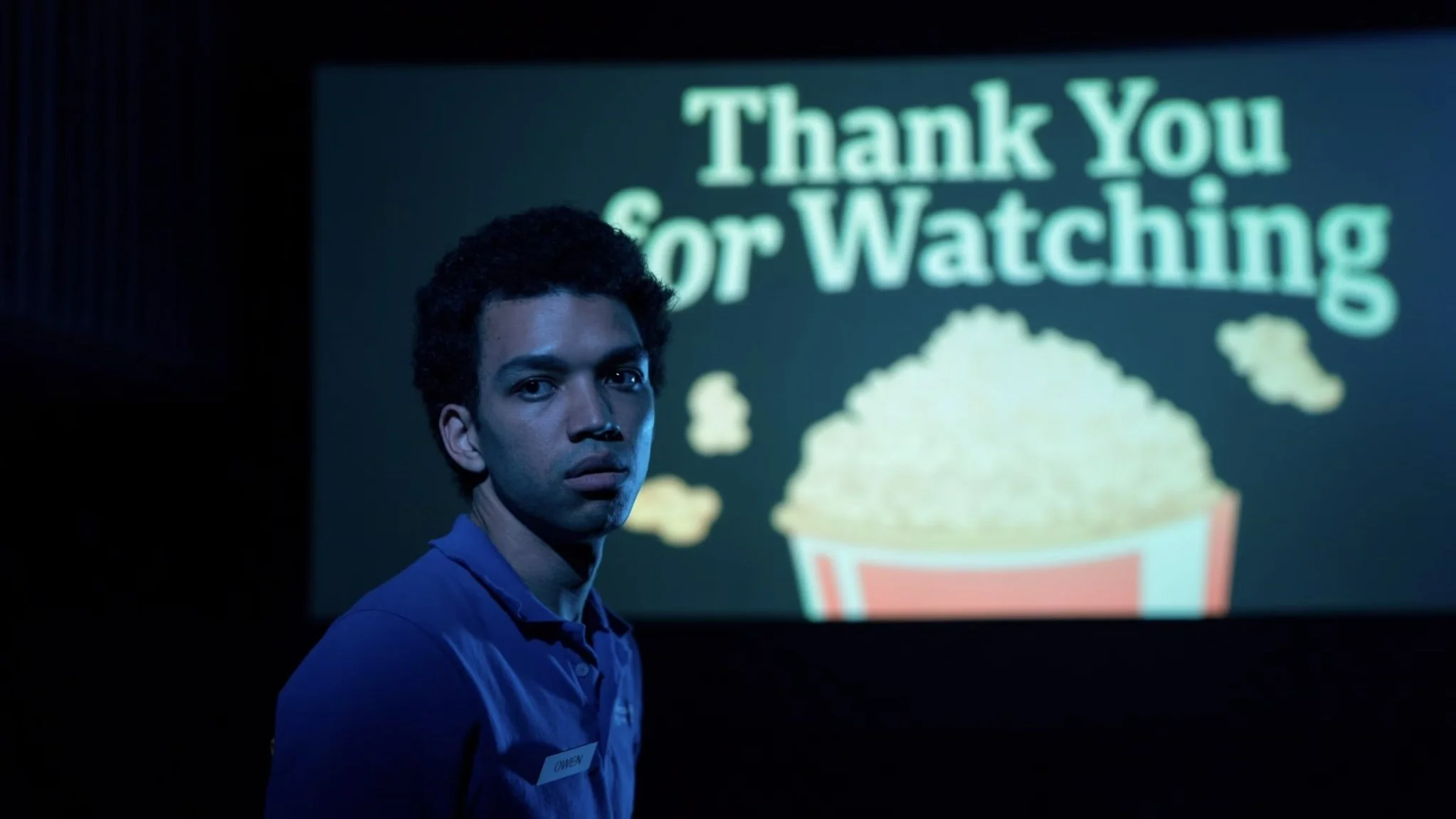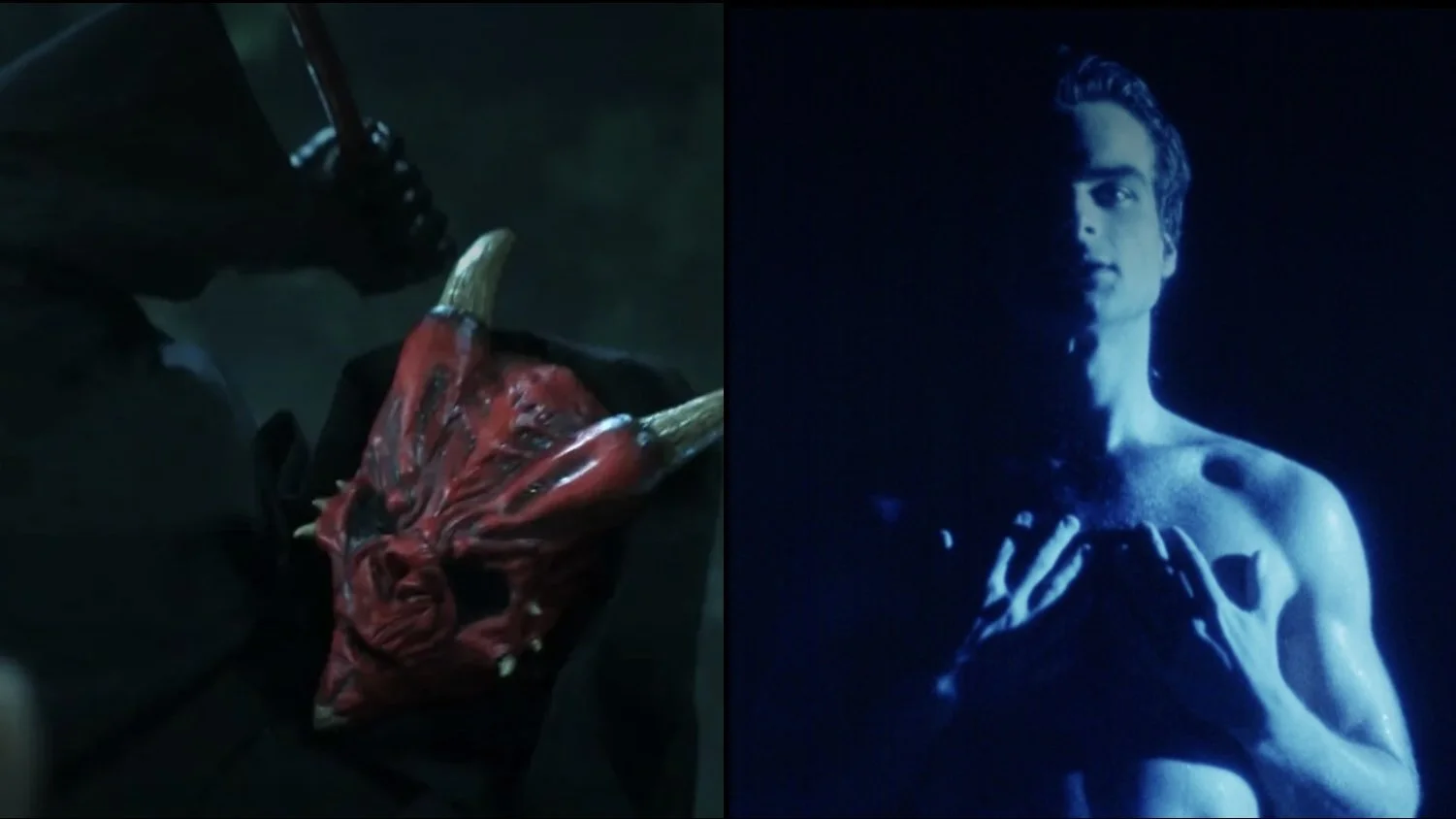Film Review — "I Saw the TV Glow"
TV has played a huge role in the millennial queer experience. I know so many people whose teen-selves felt deep, personal connections that they couldn’t quite articulate to WB shows like Buffy the Vampire Slayer or Charmed or Smallville. Before that, live-action Nickelodeon programming like Clarissa Explains It All, The Secret World of Alex Mack, and Are You Afraid of the Dark? introduced many kids to fantastical and frightful (family-friendly) storytelling that they could easily latch onto. Tons of queer millennials saw themselves reflected back in the gifted and unique characters, saw themselves inhabiting those strange settings—wanting to, or feeling like they already might.
Even though I watched those shows as well, my special series came later, in my 20s, with Hannibal. I saw myself in Will Graham (in more ways than one), saw myself thriving in his macabre world, and yearning for my own “murder husband,” too. Pre-Hannibal, I was basically nonsexual—or, rather, I wasn’t really me yet. I was completely shut-off from the sexuality I know now. Like Owen in I Saw the TV Glow, if you had asked teen me if I liked girls or boys, I also may’ve just said something akin to, “I think I like TV shows,” without understanding the gravity of that answer.
Justice Smith’s Owen is such a wealth of layers. I was drawn to his voicework in particular. Actors who have a strong command of their “instrument,” as my acting mentor would say, tend to pull me in. On a technical level, I found the controlled restriction in and of his vocal cords to be sharply affecting. The execution of it alone is striking—a choice that grabs your attention nearly anytime he speaks. Then, the suggestive nature of it is… upsetting. Deep down, an inner truth, an identity, yearns to be free, to crack the surface, but it’s not allowed to be out, to breathe. Owen’s throat becomes a means of quelling that escape, that embrace. So too is Owen’s posture; there’s usually a certain degree of slump to it, a faint collapse inward—another means of suffocating the truth.
Smith’s distinct performance makes a fascinating side-by-side with Brigette Lundy-Paine’s portrayal of Maddy, who acts as a harbinger of candor from the moment they appear, first as a resident authority on The Pink Opaque, the late-night YA fantasy-horror program Owen is obsessed with, then later for something much more profound. Maddy is the more in-touch character from the jump, and Lundy-Paine skillfully builds their emotional arc. They take Maddy from being a reclusive alt-girl searching for a way out of their false-life to being fully red-pilled (to reclaim a politically hijacked sci-fi concept that was originally conceived by trans women) by the end. In the latter half of the film, Lundy-Paine delivers a riveting, earth-shattering monologue that I hope becomes a standard audition piece for young actors; it has so much reverb, thanks of course to Lundy-Paine’s resonance and to writer-director Jane Schoenbrun’s poignant staging.
The language of I Saw the TV Glow is peerless. I mean, sure, I could name some clear visual and auditory influences, like Twin Peaks, but I’d be hard-pressed to name another contemporary filmmaker who has so boldly and successfully commandeered filmic elements and re-translated them to suit their specific lens. And it’s not just about what we see and what we hear—even though it is definitely that too—but also the way everything comes together to make us feel. I’ve seen trans critics tweet that I Saw the TV Glow feels like gender dysphoria, which is so goddamn radical! I don’t have personal experience with that, but I 100% believe it. I Saw the TV Glow, at the very least, made me feel a little uncomfortable in my skin, or disoriented, and I love when a movie has that kind of power.
Jane Schoenbrun has it. They are a lover of cinema. They are a student of cinema. They are the future of cinema. The passion radiates off the screen. Too many of today’s filmmakers (and reviewers) seem to loathe the very things that make movies movies. I’m sick of all the broad, flat lighting for the sake of “realism”, when there are variations in light all around us all the time. Same with the muted, unexciting color palettes, which also aren’t really “realistic” if you actually look around. So thank fuck Jane Schoenbrun is here to school us. Schoenbrun clearly appreciates—and understands the importance of—color and light. They, along with DP Eric Yue, use color and light as emotional gauges, mainly for Owen. Vibrancy, contrast, and saturation either soar or wane in response to his overall state. So, in essence, the aesthetic itself has an emotional path to follow as well.
The best source of color and light in the film is undoubtedly the titular TV glow. For a lot of us, particularly those of us who spent whole weekends or summers basking in its glory instead of frolicking in the sun, TV screens are a familiar, inviting presence. They offer a gateway to another, perhaps better, perhaps truer, reality inhabited by folks we relate to. Maybe in the reality where you belong, you and your new bestie fight monsters with your psychic abilities. In mine… well, I guess some days I’m engaged in a psycho-sexual affair with the sexy cannibal who helps me catch killers, and some days I’m a man-eater with a hot criminologist as my plaything. That’s the beauty of being vers; I highly recommend it. And if you somehow haven’t gathered by now, I also highly recommend I Saw the TV Glow, especially if you’re in the mood for queer arthouse existential horror.


